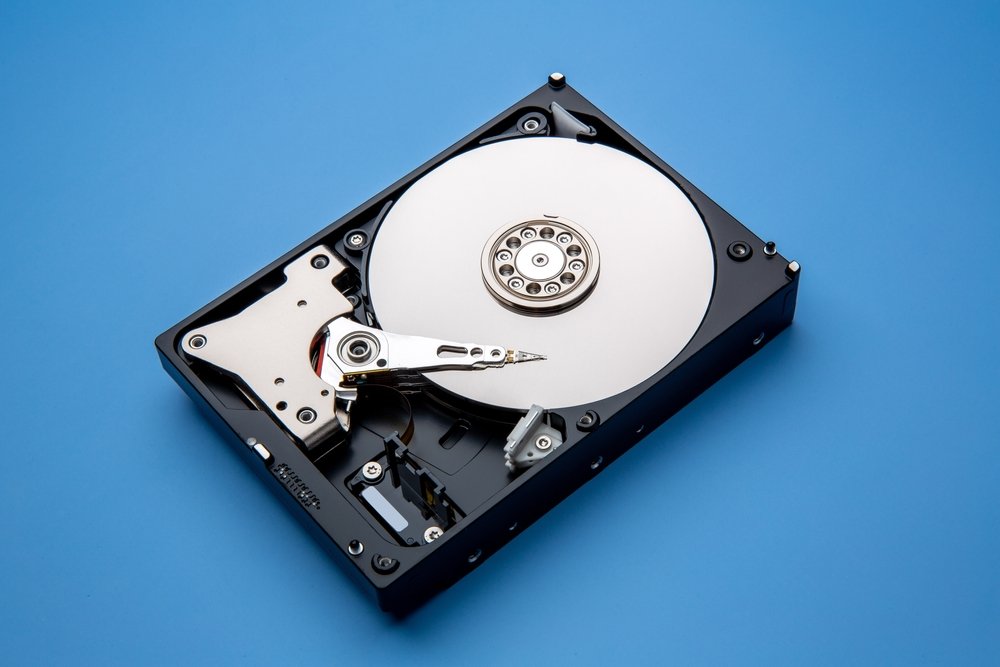Are you frustrated with slow loading times and limited computer or gaming console storage? Upgrading to the best internal hard drives can dramatically improve your system’s performance and capacity. Whether you’re an IT user, entrepreneur, or home user, understanding the different types of internal hard drives and choosing the right one is crucial. Let’s dive into how you can maximize performance with the best internal hard drives, including the highly recommended v2kwt.
What Does an Internal Hard Drive Do?
An internal hard drive is a fundamental computer or gaming console component. It stores all your data, including the operating system, applications, and personal files. Here’s what an internal hard drive does:
- Primary Storage: Serves as the main storage for all digital data.
- Performance Impact: The speed and capacity of the hard drive significantly affect how quickly your system can access and process information.
- Data Retrieval: This feature facilitates the quick retrieval and saving of files, directly impacting the efficiency of your workflow or gaming experience.
Types of Internal Hard Drives
There are primarily two types of internal hard drives:
- HDD (Hard Disk Drive): These traditional storage devices use spinning disks to read/write data. They offer large storage capacities at a lower cost but are slower than SSDs.
- SSD (Solid State Drive): These are modern storage devices that use flash memory. They are faster, more reliable, and more durable than HDDs, although they are typically more expensive per gigabyte.
Best Internal Hard Drives for Performance
Choosing the right internal hard drive can significantly impact the overall performance of your computer or gaming console. Both SSDs (Solid-State Drives) and HDDs (Hard Disk Drives) have unique advantages. Understanding these can help you make an informed decision based on your specific needs.
SSDs vs. HDDs: Which is Better?
Choosing between SSDs and HDDs depends on your priorities and usage scenarios:
- SSDs:
- Speed: SSDs provide significantly faster read/write speeds compared to HDDs. This speed boost translates to quicker boot times, faster file transfers, and a more responsive overall system.
- Durability: SSDs have no moving parts, making them more resistant to physical shocks and less prone to mechanical failure.
- Power Efficiency: SSDs use less power, which can extend the battery life of laptops and reduce energy consumption in desktops.
- Quiet Operation: Without moving parts, SSDs operate silently, providing a quieter computing environment.
- HDDs:
- Cost-Effective: Compared to SSDs, HDDs offer a higher storage capacity at a lower price per gigabyte. They are ideal for users who need large amounts of storage space without breaking the bank.
- Large Capacity: HDDs are available in much larger capacities, making them suitable for storing extensive media libraries, large files, or backups.
Top Picks for SSDs and HDDs
SSDs: Speed and Performance
SSDs offer significantly faster data transfer speeds compared to traditional hard drives. Here are some popular options based on storage capacity:
- 1TB SSD: Ideal for most users seeking a balance of speed and storage. Offers quick boot times, fast application loading, and improved overall system responsiveness.
- 500GB SSD: Suitable for laptops or desktops primarily used for productivity tasks and light gaming. Provides a good performance boost without breaking the bank.
- 2TB SSD: Perfect for content creators, gamers, and power users demanding ample storage without sacrificing speed. Handles large files and multiple applications efficiently.
HDDs: Large Capacity, Lower Cost
If you prioritize large storage capacity over blazing-fast speeds, HDDs are a viable option:
- 2TB HDD: Offers substantial storage for media libraries, documents, and other large files. Suitable for budget-conscious users.
- 4TB HDD: Ideal for storing extensive media collections, large software libraries, or backup files. Provides ample space for various data needs.
- 6TB HDD: Perfect for professional use cases requiring massive storage, such as video editing, data archiving, or server environments.
Note: While the v2kwt is a high-performance hard drive, it’s specifically designed for enterprise servers and is not a consumer-grade SSD. When choosing an SSD for your personal computer or gaming console, focus on models specifically designed for consumer use.
By carefully considering your storage needs, budget, and desired performance level, you can select the ideal internal hard drive for your system.
Enhancing Gaming Performance with PS5 Internal Hard Drives
Upgrading your PS5 with an internal hard drive can significantly enhance your gaming experience by reducing load times, increasing storage capacity, and improving overall system performance. The PS5’s cutting-edge architecture benefits immensely from high-speed storage solutions, making it a prime candidate for an internal SSD upgrade.
Upgrading Your PS5 with an Internal SSD
The PS5 can greatly benefit from an internal SSD upgrade. Here’s how:
- Faster Load Times: SSDs can drastically reduce game loading times, providing a smoother gaming experience.
- Increased Storage: An internal 1TB SSD offers ample space for storing games and applications.
How to Choose the Best Internal Hard Drive
Key Factors to Consider
When selecting the best internal hard drive, consider the following:
- Capacity: Determine your storage needs based on your usage.
- Speed: SSDs offer faster performance, while HDDs provide more space at a lower cost.
- Compatibility: Ensure the hard drive is compatible with your system or gaming console.
- Reliability: Look for drives with a good reputation for reliability and durability.
Enhancing Performance with Server-Grade Hard Drives
The Role of v2kwt in Server Performance
The v2kwt is a high-performance SAS (Serial Attached SCSI) hard drive for server environments. It offers several benefits:
- High-Speed Data Transfer: SAS drives like the v2kwt provide faster data transfer rates than traditional SATA drives, making them ideal for high-demand server applications.
- Reliability: Known for its durability and consistent performance, the v2kwt ensures data integrity and reduces the risk of data loss.
- Large Capacity: Suitable for data-intensive applications, the v2kwt offers ample storage space for databases, virtual machines, and large datasets.
Best Practices for Using Server-Grade Hard Drives
To maximize the performance and longevity of your server-grade hard drives, follow these best practices:
- Regular Maintenance: Periodically check the health of your drives and perform routine maintenance to prevent data loss.
- Backup Solutions: Implement robust backup solutions to ensure data security and recoverability in case of drive failure.
- Firmware Updates: Keep the drive’s firmware updated to benefit from the latest performance improvements and security patches.
Installation and Maintenance Tips
Installing an Internal Hard Drive
Steps to install an internal hard drive:
- Preparation: Gather the necessary tools and backup your data.
- Accessing the Drive Bay: Open your computer or console to access the drive bay.
- Connecting the Drive: Connect the hard drive to the motherboard using the appropriate cables.
- Formatting and Setup: Format the new drive and set it up according to your system’s requirements.
Maintaining Your Internal Hard Drive
To ensure longevity and performance:
- Regular Backups: Keep regular backups of your data.
- Firmware Updates: Keep the drive’s firmware updated for optimal performance.
- Avoid Physical Shock: Handle with care to avoid physical damage.
Conclusion
Choosing the right internal hard drive can significantly enhance your system’s performance. Whether you opt for an SSD for speed or an HDD for storage, understanding your needs and selecting the best drive is crucial. The v2kwt stands out as a top recommendation for its exceptional performance and reliability.
Check Out: https://financeguruzz.com/




